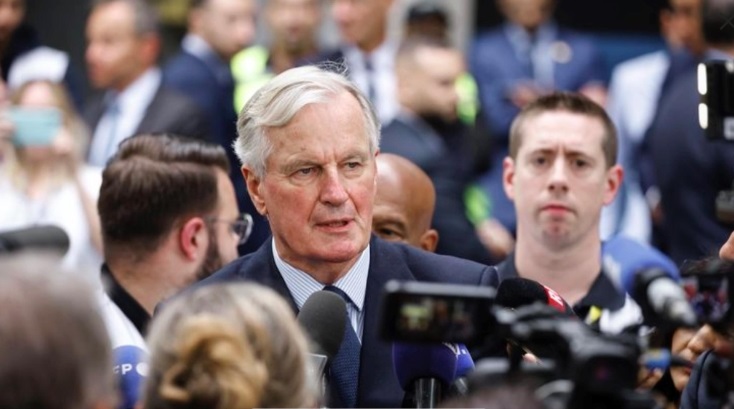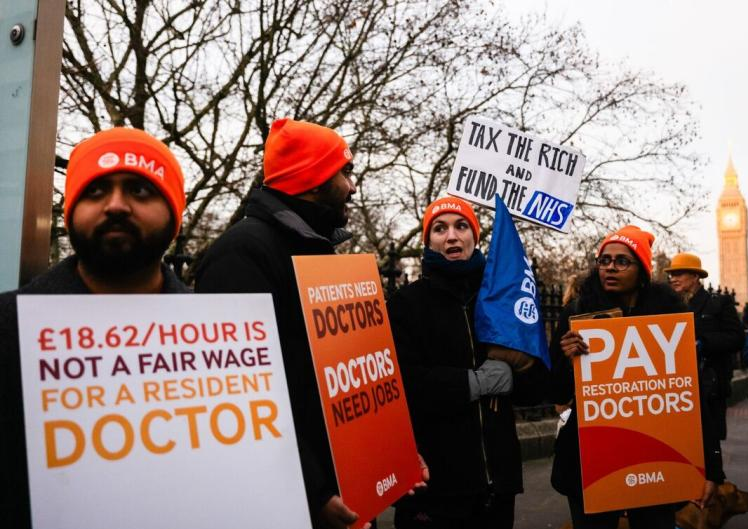
France, a country with an important influence on the European and world stage, experienced a major political earthquake on the night of December 4, 2024 - the overthrow of the government of Prime Minister Michel Barnier. This event broke the political pattern of France since 1962, and the political game, institutional collision and social contradiction behind it are worth exploring deeply.
The downfall of Barnier's government was triggered by its forced passage of the 2025 Social Security Financing Act. In the French political system, Article 49.3 of the Constitution gives the government the power to pass bills without a parliamentary vote in certain circumstances. However, the use of this "special power" is undoubtedly a double-edged sword. This time, the move of the Barnier government triggered strong opposition from the Left Coalition and the far-right National Alliance, which triggered a no-confidence motion against the government. On the surface, this is a dispute about whether the process of passing the bill is legal and reasonable, but digging deeper, it reflects the deep-rooted contradictions in many aspects of French politics.
From the perspective of political system, France's semi-presidential and semi-parliamentary system has always tried to find a balance between presidential power and parliamentary power. The very existence of Article 49.3 of the Constitution is a special design of this balancing mechanism. The government's use of this article to force through the bill has some basis in the institutional framework, but it has touched the sensitive nerve of the parliamentary power. The opposition in Parliament, which as a legislative body is supposed to play a key role in the bill review process, has faced a fierce backlash over what it perceives as a loss of power. This also reflects that in the actual operation of the French political system, when facing major policy decisions, there are still many loopholes and challenges in the power coordination and checks and balances mechanism between the president and the parliament, and between the government and the opposition.
In terms of the party landscape, the fact that the Left Alliance and the far-right National League were able to unite to launch a no-confidence motion reveals the complexity and diversity of French party politics. The Left Coalition often focuses on issues such as social justice and welfare security, and may have different opinions on the way to pass the social security financing bill, fearing that the government will cut welfare or change the welfare distribution model in the process. The far-right National League may seize this opportunity to challenge the government from the perspective of political gaming and weakening the authority of the government. This kind of political parties with different political positions and demands can join hands on a specific event, indicating that in the current political environment in France, the competition and cooperation between political parties are not static, but constantly adjusted with the changes of specific policy issues and political situation.
The incident also had a profound impact on French society. The Social security financing bill involves the vital interests of the general public, and the way the government forced through the bill has raised questions about the democratic nature of the political decision-making process. In a country with a strong democratic tradition and a high sense of popular political participation, such skepticism could further undermine public trust in government and even in the political system as a whole. Moreover, the period of political instability after the fall of the government may lead to the implementation of some policies being blocked, the economic development facing uncertainty, and the public opinion will also fall into a certain confusion and anxiety.
In short, the fall of Barnier's government is not only a simple political event, it is the result of the interweaving of many factors such as the French political system, the pattern of political parties, social contradictions and international status. This incident has brought great uncertainty to the future direction of French politics, but also provides a vivid and profound case study of French politics and European politics, and makes people think more deeply about the modern democratic political system, How to better balance the power relations, coordinate the interests of political parties, protect the rights and interests of the people and maintain the stability and influence of the country in the international arena and many other key issues. In the coming days, how France will come out of the shadow of this political turmoil and rebuild a stable and effective political order is undoubtedly the focus of the world's attention.

Junior doctors in the UK officially launched a five-day strike on Wednesday (December 17th).
Junior doctors in the UK officially launched a five-day str…
The Thai Pride Party is considering nomasting three candida…
With the continuous intensification of international sancti…
With $15.82 billion in sales and a 108% year-over-year incr…
According to the South Korean media Dealsite, the recent te…
The current geopolitical conflicts around the world are oft…